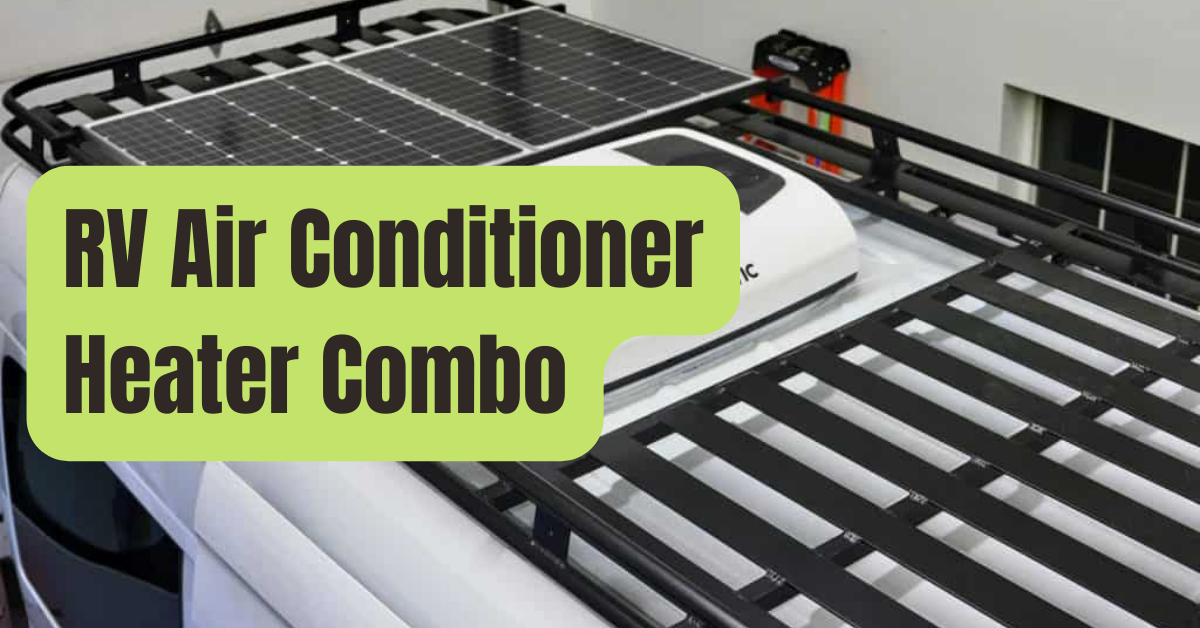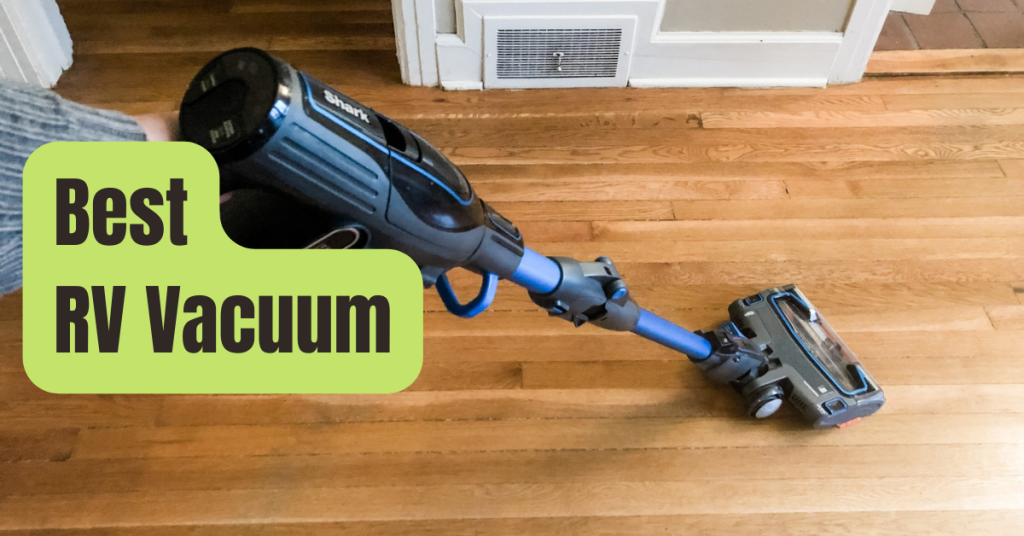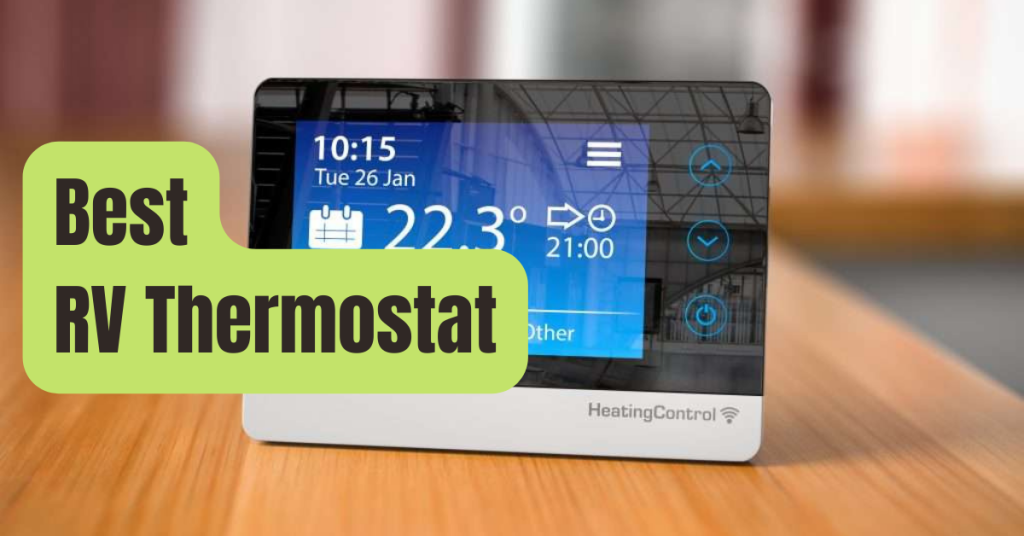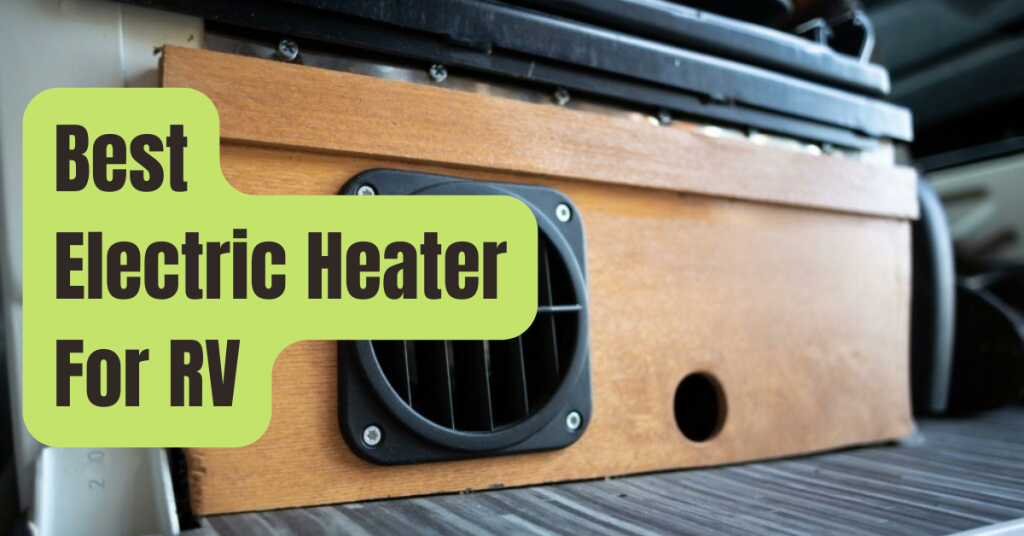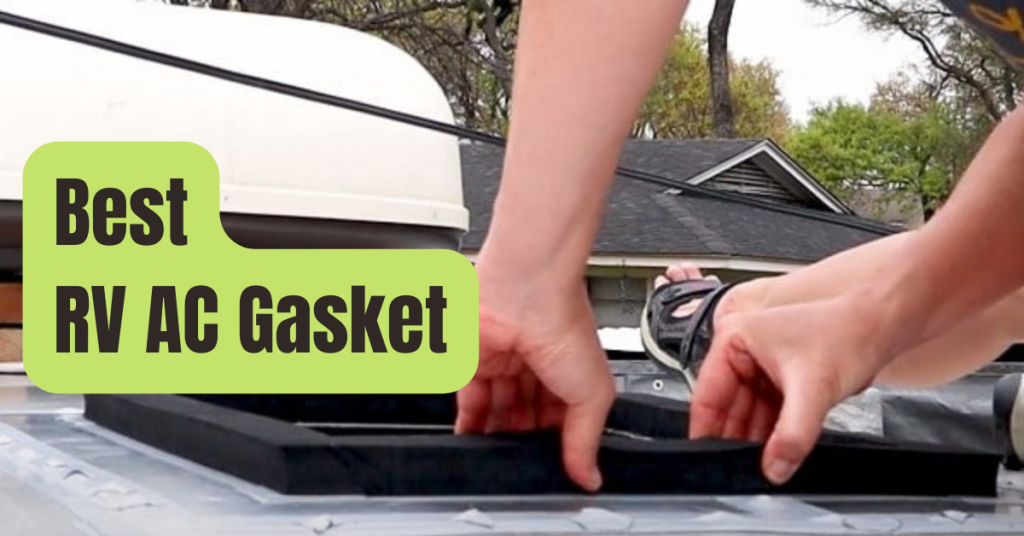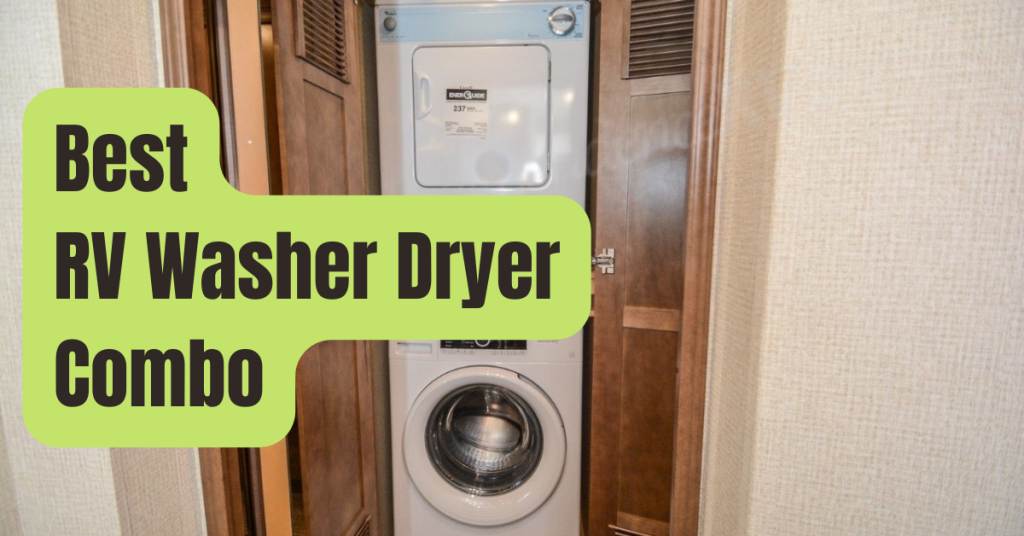You never know what the weather will be like while you’re traveling.
You may go through some scorching locations and spend a chilly night in another area a few hours later.
Many people assume they only want a cooling option since they are used to traveling during the summer or in hot climates, but what if you end yourself stranded in a colder climate and need to warm yourself?
An air conditioner and heater combination, which offers both cooling and heating choices, is a fantastic alternative.
Before I share with you the top 7 RV air conditioners with heat pumps, let’s first discuss some factors you should take into account before making a decision.
Things To Think About When Purchasing An RV Air Conditioner And Heater
- Fuel – The installed RV air conditioner, which runs on gasoline, is the most common choice. Electricity, on the other hand, is considerably safer, and you can even get air conditioners that use solar power.
- Noise – You should get a decent night’s sleep while you’re traveling. When your AC is making so much noise and you can’t go to sleep, it is one of the most aggravating experiences. Decibel ratings should always be considered when making a purchase.
- Advanced choices – Changing the operating mode from fan to humidifier is one of the greatest AC technologies.
- Type – There are several variations on the RV air conditioner and heater combination, including models with and without vents, portable, rooftop, and windows. Choose the one that best meets your requirements.
- Power – BTUs are used to measure the power of an RV air conditioner. Up to a 400 sq. ft. RV may be comfortably cooled by units with BTU rates above 8,000.
The Top 7 RV Heater and Air Conditioner Combos
#1. Best Overall: Dometic Brisk Air II

Dometic Brisk Air II 15,000 BTU Rv Ac Complete ND System W/Heat
You may use this RV air conditioner for anything.
As a result of the sturdy and well-made frame base metal, don’t anticipate a lightweight item.
It has a great deal of power and can quickly cool practically any RV location.
You won’t need to purchase any more components since the device is sent to you already equipped with everything you need.
Although cooling somewhat outperforms heating, both working modes may be used effectively.
I like how installing this unit is so straightforward that you may not even require expert assistance.
Because of the strength of this air conditioner, even if you want to go to locations where the temperature often above 100 degrees, you won’t feel the heat even slightly.
#2. Powerful: DOMETIC 651816CXX1C0 Penguin

DOMETIC 651816CXX1C0 Penguin II Heat Pump
This air conditioner is all you will need if your RV is 500 square feet or larger.
I was really aback by how well the heat pump heated the whole RV and how beautifully it operated.
In terms of effectiveness, it uses 120-volt electricity, which is said to be quite effective.
You and your family won’t have any trouble falling asleep when this AC is operating since it is so quiet.
Additionally, it’s really simple to install, so if you’ve ever installed an air conditioner before, you can do it on your own.
#3. Most Quiet: RecPro RV Low Profile

RecPro RV Air Conditioner Low Profile 13.5K Non-Ducted
I initially put this air conditioner through its paces and was struck by how much quieter it is than other RV air conditioners.
The remote’s sleep mode should be configured for the best possible sleep.
Installation is quite simple, and you even receive a remote control to set up everything you want.
This air conditioner will fit well in a black RV.
I like how RecPro chose to once again differentiate themselves from the competition as most RV air conditioners are white.
Because it is ductless, the installation is significantly simpler.
#4. Smaller RVs: Dometic Brisk II Rooftop

Dometic Brisk II Rooftop Air Conditioner, 13,500 BTU
This is the ideal choice if you have a smaller RV.
Without a doubt, this air conditioner is really strong, however after a while, the airflow decreases.
This is the justification for my advice to everyone who owns a smaller RV to get this unit.
It’s a good idea to install this unit even if you just want to use it in your bedroom.
The installation procedure is a little challenging, so I would suggest calling a buddy who has some knowledge or hiring a professional.
You won’t have any problem installing it on your roof since it is lightweight.
It’s a little bit noisy than other ACs, I must admit.
#5. Classic: DOMETIC 630515.331C Penguin

DOMETIC 630515.331C Penguin Upper Unit Ducted
I prefer to refer to this air conditioner as a traditional RV air conditioner.
With 13,500 BTU, it has little trouble cooling larger RVs, allowing your whole family to remain comfortable even in the hottest weather.
Because they want to increase wind resistance, the design is elegant.
You won’t need to prepare for any additional charges since it installs more quickly than other air conditioners.
#6. Multi-function: Standard Dometic Penguin II Low-Profile

Standard Dometic Penguin II Low-Profile
The main benefit of this air conditioner is its low profile aerodynamic design, which lowers wind resistance and conserves fuel.
Although it is not quite as powerful as the other air conditioners on our list, it is extremely quiet and can be used throughout the day and night without any issues.
Further, Dometic produced wall, electronic, and manual thermostat controls.
You may change the blower’s speed settings based on the time of day since it features a 3-speed motor.
You’ll like this air conditioner if you enjoy cutting-edge features.
#7. Design: Coleman 48204C869 RV

Coleman 48204C869 RV Air Conditioner
This product is great in terms of design, making the competitors irrelevant.
Many of us like enhancing the appearance of our RVs, and this air conditioner will help.
Once you’ve let your RV to run for a few minutes, it will feel like an ice cube.
The installation procedure will be simple if you have previously installed another AC because of the universal fit.
The only aspect of this AC that I don’t like is the delivery and packing, which might be much better.
Benefits Of Heat Pump RV AC
#1. Efficient
The average RV air conditioner uses little electricity and can cool practically all RVs with an 8,000 BTU unit.
According to my experience, your appliance will operate damage-free for a longer period of time if it is more efficient.
While operating, a 10,000 BTU air conditioner consumes around 700 watts.
You should also get familiar with 15 easy techniques to reduce the cost of your air conditioning.
#2. More Comfort
The temperature inside your RV rapidly climbs when the sun begins to shine through the windows while you’re on the road.
It’s difficult to feel comfortable when you’re perspiring and it’s too hot, isn’t it?
Traveling became more enjoyable and pleasant when I installed an AC with a heat pump in my RV.
#3. Optional Heating
You’ll undoubtedly use the heating option often if you’re not simply a seasonal traveler who only uses an RV during the summer.
The ability to utilize air conditioners and heaters all year round is their greatest benefit.
I first believed I would never need a heating option, but after using one, I quickly changed my mind.
#4. Easily Maintained
The only significant upkeep is cleaning your unit once a month.
The condensate tube and filters must be kept clean since they contribute to your unit’s efficiency.
Additionally, carefully examine your air conditioner for damage.
How Can You Make Your RV’s Heater & Air Conditioner More Efficient?
#1. Filter Cleaning
If you want to maintain the health of your RV air conditioner, you must do this.
When you use your appliance often, the filters rapidly gather dust and filth, which significantly reduces the effectiveness of your AC.
RV rooftop air conditioners attract dust much more quickly.
This is often the cause of the heat pump’s ineffective cooling.
When traveling, you should clean the filters once per month; if you haven’t driven your RV in 90 days, clean them once.
#2. Condenser And Condensate Tube Must Be Clean.
In the presence of excessive dust and grime, condensers are susceptible to damage.
Condensate tubes may very quickly get blocked if they aren’t maintained.
It just takes a few minutes once a month to maintain their health.
#3. Look for Leaks.
If you’ve noticed that your air conditioner isn’t operating as effectively as it once did, there may be some leaks.
The initial leak often originates at the rubber gasket mounting on your roof, so check there first.
The leaks should never be disregarded since they pose a serious threat to your appliance.
#4. Employ a Specialist
This is what sustained the health and effectiveness of my unit for so many years.
I always have a pro fully clean and check out my unit.
I only perform it once a year.
If you have any extra cash, I’d strongly advise doing this once a year (after the summer).
Which AC Size Is Required For Your RV?
People often make the mistake of purchasing a smaller (or larger) air conditioner than they really need.
This is particularly true with RV air conditioner and heater combinations.
When we refer to a unit’s “size,” we mean both its power and the amount of the space it can enclose.
Measuring the square footage is the greatest method for determining the ideal size for your RV.
Here is a brief table to assist you in choosing the appropriate size:
| Size of your RV (sq. ft.) | AC Power (BTU) |
| 100-300 sq. ft. | 4,000 BTU – 7,000 BTU |
| 300-500 sq. ft. | 8,000 BTU – 11,000 BTU |
| 500-1,000 sq. ft. | 12,000 BTU – 18,000 BTU |
Purchasing a powerful unit for a smaller RV is not a good idea.
The thermostat sensors would rapidly cease functioning if you had an 18,000 BTU air conditioner and just needed to chill 200 square feet since you could reach the “desired temperature” in under two minutes.
Pick the size that will serve your requirements the best.
How Do I Clean My RV’s Heater and Air Conditioner?
The procedure for cleaning an RV air conditioner is rather simple.
Take these actions:
- Unplug the air conditioner from the outlet.
- Ascend to the top of your RV. Use some cushions if you shouldn’t be walking on your roof to stop any more harm from occurring.
- You should protect every electrical connection to prevent moisture buildup.
- Apply a good AC coil cleaning, then let it in place for 30 minutes.
- To thoroughly clean the device, use a garden hose. You’ll have to go through these prior stages and this one again if you haven’t cleaned it in a while.
- Before re-plugging the device into the outlet, give it time to thoroughly dry.
Once again, when you’re on the road, you should clean your RV unit at least once each month.
Clean the air conditioner once every three months if it is only parked in your garage.
Check out the top 7 heat pump-equipped RV air conditioners to see which one best suits your requirements.

